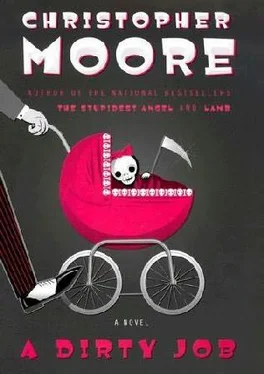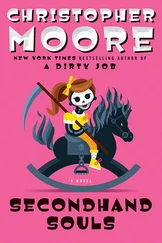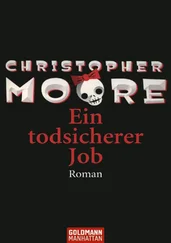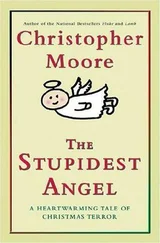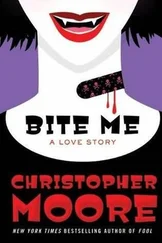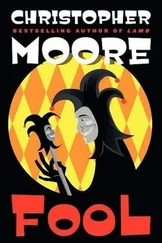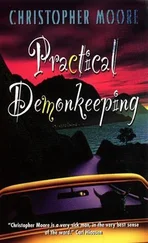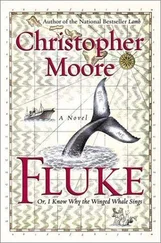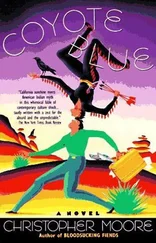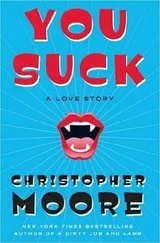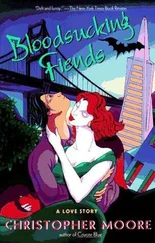“Mama,” Sophie insisted, reaching out for the toaster.
“You’re just trying to fuck with me, aren’t you?” Charlie said.
“Mama,” Sophie said to the fridge.
“Swell,” Charlie said.
He read on, realizing that Dr. Kübler-Ross had been exactly right. Every morning when he woke up to find another name and number in the day planner at his bedside, he went through the entire five-step process before he finished breakfast. But now that the steps had a name—he started to recognize the stages as experienced by the family members of his clients. That’s how he referred to the people whose souls he retrieved: clients.
Then he read a book, called The Last Sack, about how to kill yourself with a plastic bag, but it must not have been a very effective book, because he saw on the back cover that there had been two sequels. He imagined the fan mail:
Dear Last Sack Author:
I was almost dead, but then my sack got all steamed up and I couldn’t see the TV, so I poked an eyehole. I hope to try again with your next book.
The book really didn’t help Charlie much, except to instill in him a new paranoia about plastic bags.
Over the next few months he read: The Egyptian Book of the Dead, from which he learned how to pull someone’s brain out through his nostril with a buttonhook, which he was sure would come in handy someday; a dozen books on dealing with death, grief, burial rituals, and myths of the Underworld, from which he learned that there had been personifications of Death since the dawn of time, and none of them looked like him; and the Tibetan Book of the Dead, from which he learned that bardo, the transition between this life and the next, was forty-nine days long, and that during the process you would be met by about thirty thousand demons, all of which were described in intricate detail, none of which looked like the sewer harpies, and all of which you were supposed to ignore and not be afraid of because they weren’t real because they were of the material world.
“Strange,” Charlie said to Sophie, “how all of these books talk about how the material world isn’t significant, yet I have to retrieve people’s souls, which are attached to material objects. It would appear that death, if nothing else, is ironic, don’t you think?”
“No,” Sophie said.
At eighteen months Sophie answered all questions either “No,” “Cookie,” or “like Bear”—the last Charlie attributed to leaving his daughter too often in the care of Mrs. Korjev. After the turtles, two more hamsters, a hermit crab, an iguana, and two widemouthed frogs passed on to the great wok in the sky (or, more accurately, on the third floor), Charlie finally acquiesced and brought home a three-inch-long Madagascar hissing cockroach that he named Bear, just so his daughter wouldn’t go through life talking total nonsense.
“Like Bear,” Sophie said.
“She’s talking about the bug,” Charlie said, one night when Jane stopped by.
“She’s not talking about the bug,” Jane said. “What kind of father buys a cockroach for a little girl anyway? That’s disgusting.”
“Nothing’s supposed to be able to kill them. They’ve been around for like a hundred million years. It was that or a white shark, and they’re supposed to be hard to keep.”
“Why don’t you give up, Charlie? Just let her get by with stuffed animals.”
“A little kid should have a pet. Especially a little kid growing up in the city.”
“We grew up in the city and we didn’t have any pets.”
“I know, and look how we turned out,” Charlie said, gesturing back and forth between the two of them, one who dealt in death and had a giant cockroach named Bear, and the other who was on her third yoga-instructor girlfriend in six months and was wearing his newest Harris tweed suit.
“We turned out great, or at least one of us did,” Jane said, gesturing to the splendor of her suit, like she was a game-show model giving the big prize package on Let’s Get Androgynous, “You have got to gain some weight. This is tailored way too tight in the butt,” she said, lapsing once again into self-obsession. “Am I camel-toeing?”
“I am not looking, not looking, not looking,” Charlie chanted.
“She wouldn’t need pets if she ever saw the outside of this apartment,” Jane said, pulling down on the crotch of her trousers to counteract the dreaded dromedary-digit effect. “Take her to the zoo, Charlie. Let her see something besides this apartment. Take her out.”
“I will, tomorrow. I’ll take her out and show her the city,” Charlie said. And he would have, too, except he woke to find the name Madeline Alby written on his day planner, and next to her name, the number one.
Oh yeah, and the cockroach was dead.
Iwill take you out,” Charlie said as he put Sophie in her high chair for breakfast. “I will, honey. I promise. Can you believe that they’d only give me one day?”
“No,” Sophie said. “Juice,” she added, because she was in her chair and this was juice time.
“I’m sorry about Bear, honey,” Charlie said, brushing her hair this way, then that, then giving up. “He was a good bug, but he is no more. Mrs. Ling will bury him. That window box of hers must be getting pretty crowded.” He didn’t remember there being a window box in Mrs. Ling’s window, but who was he to question?
Charlie threw open the phone book and, mercifully, found an M. Alby with an address on Telegraph Hill—not ten minutes’ walk away. No client had ever been this close, and with almost six months without a peep or a shade from the sewer harpies, he was starting to feel like he had this whole Death Merchant thing under control. He’d even placed most of the soul vessels that he’d collected. The short notice felt bad. Really bad.
The house was an Italianate Victorian on the hill just below the Coit Tower, the great granite column built in honor of the San Francisco firemen who had lost their lives in the line of duty. Although it’s said to have been designed with a fire-hose nozzle in mind, almost no one who sees the tower can resist the urge to comment on its resemblance to a giant penis. Madeline Alby’s house, a flat-roofed white rectangle with ornate scrolling trim and a crowning cornice of carved cherubs, looked like a wedding cake balanced on the tower’s scrotum.
So as Charlie trudged up the nut sack of San Francisco, he wondered exactly how he was going to get inside the house. Usually he had time, he could wait and follow someone in, or construct some kind of ruse to gain entrance, but this time he had only one day to get inside, find the soul vessel, and get out. He hoped that Madeline Alby had already died. He really didn’t like being around sick people. When he saw the car parked out front with the small green hospice sticker, his hopes for a dead client were smashed like a cupcake with a sledgehammer.
He walked up the front porch steps at the left of the house and waited by the door. Could he open it himself? Would people be able to see it, or did his special “unnoticeability” extend to objects he moved as well? He didn’t think so. But then the door opened and a woman about Charlie’s age stepped out onto the porch. “I’m just having a smoke,” she called back into the house, and before she could close the door behind her, Charlie slipped inside.
The front door opened into a foyer; to his right Charlie saw what had originally been the parlor. There was a stairway in front of him, and another door beyond that that he guessed led to the kitchen. He could hear voices in the parlor and peeked around the corner to see four elderly women sitting on two couches that faced each other. They were in dresses and hats, and they might have just come from church, but Charlie guessed they had come to see their friend off.
Читать дальше
